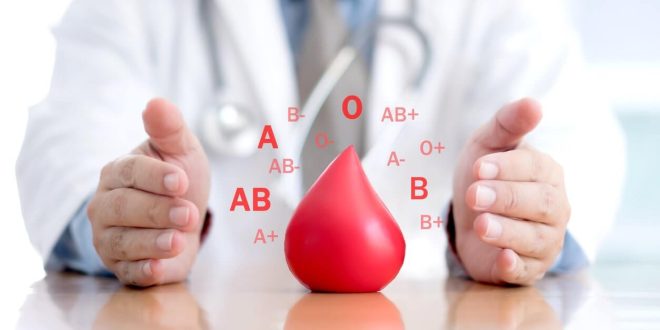What you should know: If you’re one of many who think that knowing your blood type is only important in the event you need a blood transfusion, reconsider. Identifying your blood type is key to knowing other critical factors about your health, including susceptibility to certain diseases, how you react to stress, and even how your gut bacteria break down carbohydrates and fat. In fact, a single drop of your blood contains biochemical information that is just as complex, comprehensive, and unique to you as your fingerprints or DNA.
COMMON QUESTIONS ABOUT BLOOD TYPES
How do I find out my blood type?
All it takes is a simple blood test, even a finger prick, for typing identification. If you become a blood donor, your blood is typed and cross-matched and remains on record. If you have a healthcare provider, book a basic blood test at home to know about your blood type. You can also contact Mediyaar Healthcare and ask for a basic blood test.
What are the different blood types?
Although all blood contains the same basic elements, not all blood is alike. There is a calculation of eight different common blood types categorized into four major groups. These assortments are determined by the presence or lack of certain antigens. Since some antigens can initiate a patient’s immune system to attack the transfused blood, safe blood transfusions depend upon the cautious typing of blood and cross-matching between donor and recipient.
How is my blood type determined?
Blood type is inherited, passed genetically from your biological parents, and is determined by two factors: the ABO grouping system and the Rh factor. Research shows that your blood type is a critical genetic factor that influences several areas of health.
The major blood types
Group A contains A antigen
The type of blood you have is based on the existence or lack of antigens and antibodies in your blood. Antigens are proteins that stick to the texture of red blood cells and pick your blood type. Antibodies are produced in the plasma or liquid amount of the blood.
There are 4 primary groups of blood types:
Group A – This includes only the A antigen on red cells with B antibody in the plasma.
Group B – Includes only the B antigen on red cells with A antibody in the plasma.
Group AB – It has both types of A and B antigens on red cells, but neither A nor B in the plasma.
Group O – Neither A nor B antigens on red cells but both A and b are in the plasma.
Though not all ethnic groups have the same mix of blood types, O positive is the most common blood type. In general, Hispanics have a relatively high number of O’s and Asians have a relatively high number of B’s.
What is the Rh Factor?
How common is your blood type addition to the ABO typing system, each blood type is also determined by the presence or absence of another antigen – the Rh Factor. For example, if you are Rh-negative with Type A blood, you are considered A-negative. If you are Rh-positive with Type B blood, you are B positive. Though there are more than 20 blood-type systems, ABO and Rh are the most important ones.
Is one blood type “better” than another?
Certain blood types may be a higher chance for certain diseases. Some researchers have found that people with blood type O have a lower risk for heart disease, but a higher risk for stomach ulcers. Type A people have more heightened levels of stress hormones. There are some theories that maintain there is a link between nutrition and blood types and that when we eat food not compatible with our blood types, the body responds in a negative way.
While not everyone agrees with this theory, entire books have been written on the topic by naturopathic physicians and nutritional counselors.
Blood type has strengths and weaknesses that are affected not only by what they eat but by characteristics that control digestion and assimilation of different foods. When we eat food not compatible with our blood types, the immune system produces antibodies; the end result is a breakdown of body systems that can lead to serious health problems. A blood type A, for example, should avoid certain meats and dairy; Type B should eliminate wheat and corn; Type O (the oldest blood type) is often found in people that are lactose intolerant, etc.
Regardless of whether you believe in a connection between blood types and nutrition, it’s still important to know your own blood type.
 Stride Post Latest News
Stride Post Latest News




